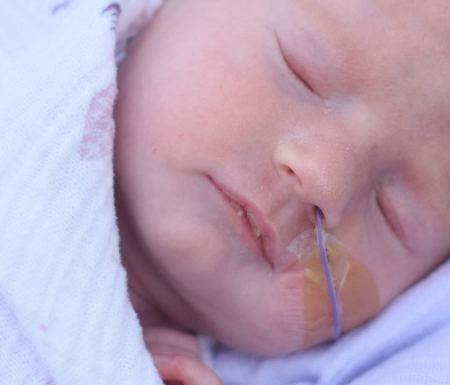Summary
Definition
History and exam
Key diagnostic factors
- central hypotonia
- poor suck
- weak cry
- feeding difficulties
- hypogonadism
- weight gain and hyperphagia
Other diagnostic factors
- developmental delay
- cognitive disability
- endocrine disorders
- sleep abnormalities
- behavioural abnormalities
- psychiatric disorders
- short stature
- small hands and feet
- hypopigmentation
- ocular problems
- spinal deformities
- polyhydramnios
- decreased fetal movements
- developmental dysplasia of the hip
- seizures
- premature adrenarche
Risk factors
- older maternal age (>35 years)
- hydrocarbon exposure
- conception using assisted reproductive technology
- sibling with Prader-Willi syndrome (PWS)
Diagnostic tests
1st tests to order
- DNA methylation testing
Tests to consider
- further genetic testing
Treatment algorithm
with acute illness
without acute illness
Contributors
Authors
Jennifer Miller, MD
Professor of Pediatric Endocrinology
University of Florida
Gainesville
FL
Disclosures
JM declares that she has no competing interests.
Peer reviewers
Nicola Bridges, DM, MRCP, FRCPCH
Consultant Paediatric Endocrinologist
Chelsea and Westminster Hospital
London
UK
Disclosures
NB declares she has no competing interests.
Peer reviewer acknowledgements
BMJ Best Practice topics are updated on a rolling basis in line with developments in evidence and guidance. The peer reviewers listed here have reviewed the content at least once during the history of the topic.
Disclosures
Peer reviewer affiliations and disclosures pertain to the time of the review.
References
Key articles
Duis J, van Wattum PJ, Scheimann A, et al. A multidisciplinary approach to the clinical management of Prader-Willi syndrome. Mol Genet Genomic Med. 2019 Mar;7(3):e514.Full text Abstract
McCandless SE, Committee on Genetics. Clinical report - health supervision for children with Prader-Willi syndrome. Pediatrics. 2011 Jan;127(1):195-204.Full text Abstract
International Prader-Willi Syndrome Organisation. Guides for doctors: consensus documents. [internet publication].Full text
Reference articles
A full list of sources referenced in this topic is available to users with access to all of BMJ Best Practice.

Differentials
- Spinal muscular atrophy
- Angelman syndrome
- Temple syndrome
More DifferentialsGuidelines
- Guides for doctors: consensus documents
- Health supervision for children with Prader-Willi syndrome
More GuidelinesPatient information
Weight problems in adults: questions to ask your doctor
Obesity and overweight in children: support and treatment
More Patient informationLog in or subscribe to access all of BMJ Best Practice
Use of this content is subject to our disclaimer